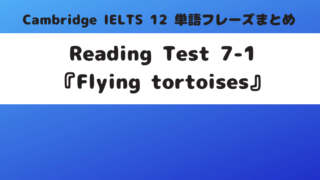Reading Test 6-3『The Benefits of Being Bilingual』の単語・フレーズの単語・フレーズをまとめました。
私がIELTS Readingの単語・まとめを行う理由は「Cambridge IELTS Reading単語・フレーズまとめ」からご覧ください。
Reading Test 6 Passage 3: The Benefits of Being Bilingual
- peer
verb /pɪər/
・a person who is the same age or has the same social position or the same abilities as other people in a group:
・a person who has a high social position and any of a range of titles, including baron, earl, and duke, or a life peer:
1 《通例複数形で》 (年齢・地位などが) 同等の者, 仲間, 同僚
2 貴族, 上院議員
(実践IELTS英単語3500:1467) - thereby
adverb /ˌðeəˈbaɪ/
as a result of this action
その結果, それによって
(実践IELTS英単語3500:2502) - all at once
突然 - sequential
adjective /sɪˈkwen.ʃəl/
following a particular order
(一定の順序に従って) 連続的な, 順序立った - auditory
adjective /ˈɔː.dɪ.tər.i/
of or about hearing:
聴覚の
(実践IELTS英単語3500:2607) - corresponding
adjective /ˌkɒr.ɪˈspɒn.dɪŋ/
similar to, connected with, or caused by something else:
1 対応する, 関連して生じる, 伴って生じる
2 相当する 同意 equivalent
(実践IELTS英単語3500:1737) - compelling
adjective /kəmˈpel.ɪŋ/
・If a reason, argument, etc. is compelling, it makes you believe it or accept it because it is so strong
・very exciting and interesting and making you want to watch or listen
1 <話・映画などが> 人をひきつける, 人の心をつかんで離さない
2 <理由・主張などが> 説得力のある, 信じるに足る
3 <欲求・願望などが> 抗しがたい, 抑えきれない
(実践IELTS英単語3500:1954) - persistent
adjective /pəˈsɪs.tənt/
・lasting for a long time or difficult to get rid of:
・Someone who is persistent continues doing something or tries to do something in a determined but often unreasonable way:
1 <犯罪者・犯罪が> 常習的な
2 しつこい, 慢性的な
3 粘り強い, 不屈の
(実践IELTS英単語3500:1673) - tip of the tongue
通常はat / onが前置詞で
<言葉・名前などが> のどまで出かかって - excel
verb /ɪkˈsel/
・to be extremely good at something:
1 《進行形不可》 <人が> 抜きんでる, 秀でる
2 excel yourself 英
いつもより実力を発揮する
(実践IELTS英単語3500:2392) - tap into something
1 <人の心境・状況など>を利用する, 活用する
2 <人の持つ知識・経験など>を活用する
3 <資金・資源など>を引き出す, 利用する - perpetual
adjective /pəˈpetʃ.u.əl/
・continuing forever in the same way:
・often repeated:
1 (いらだたせる事などが) のべつ幕なしの, ひっきりなしの
同意 constant
2 不断の, 絶え間ない
同意 constant
(実践IELTS英単語3500:2242) - sensory
adjective /ˈsen.sər.i/
connected with the physical senses of touch, smell, taste, hearing, and sight
感覚の, 知覚の, 五感の
(実践IELTS英単語3500:2623) - adolescent
noun /ˌæd.əˈles.ənt/
a young person who is developing into an adult
思春期の若者
(実践IELTS英単語3500:2229) - degenerative
adjective /dɪˈdʒen.ər.ə.tɪv/
A degenerative illness is one in which the body or a part of the body gradually stops working:
<病気が> 変性の, (時がたつにつれ) 悪化していく - severity
noun /sɪˈver.ə.ti/
seriousness
1 (痛みなどの) 激しさ, (病気などの) 重さ, (問題などの) 深刻さ
2 (人の) 厳格さ
3 (罰などの) 厳重さ, (税の) 重さ
4 (服装・外見などの) 地味さ, 簡素さ
(実践IELTS英単語3500:2588) - tinkling sound
鈴の音 - impart
verb /ɪmˈpɑːt/
・to communicate information to someone:
・to give something a particular feeling, quality, or taste:
1 …を与える
2 <知識など> を授ける, <情報など> を伝える
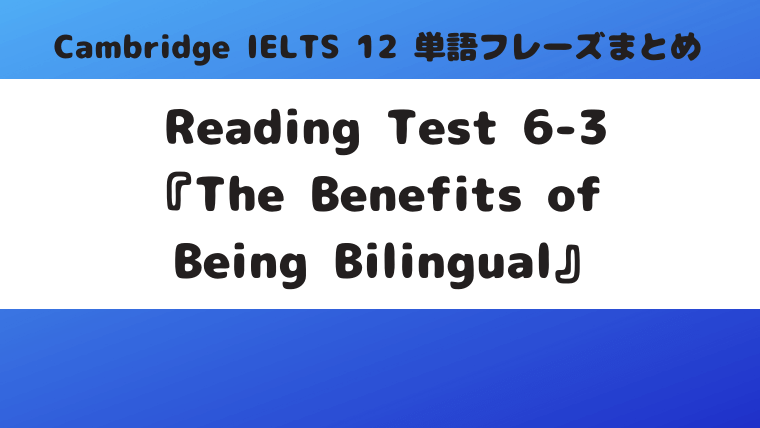

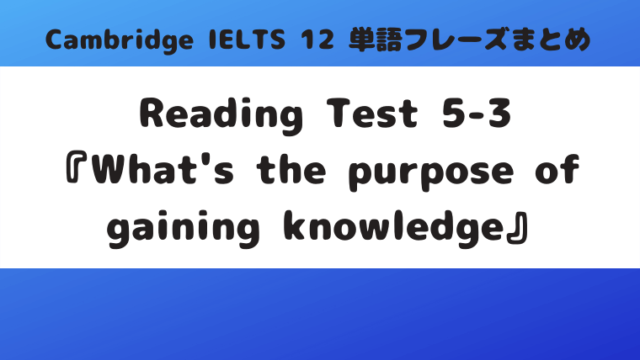
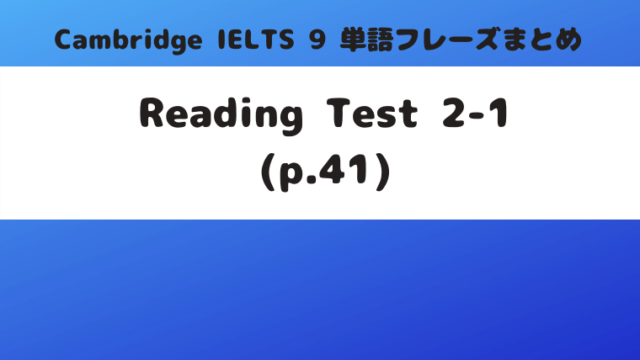
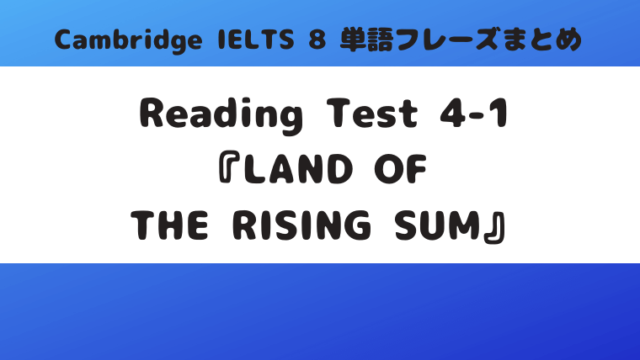
」を無料でゲットできる2つの方法-320x180.png)
